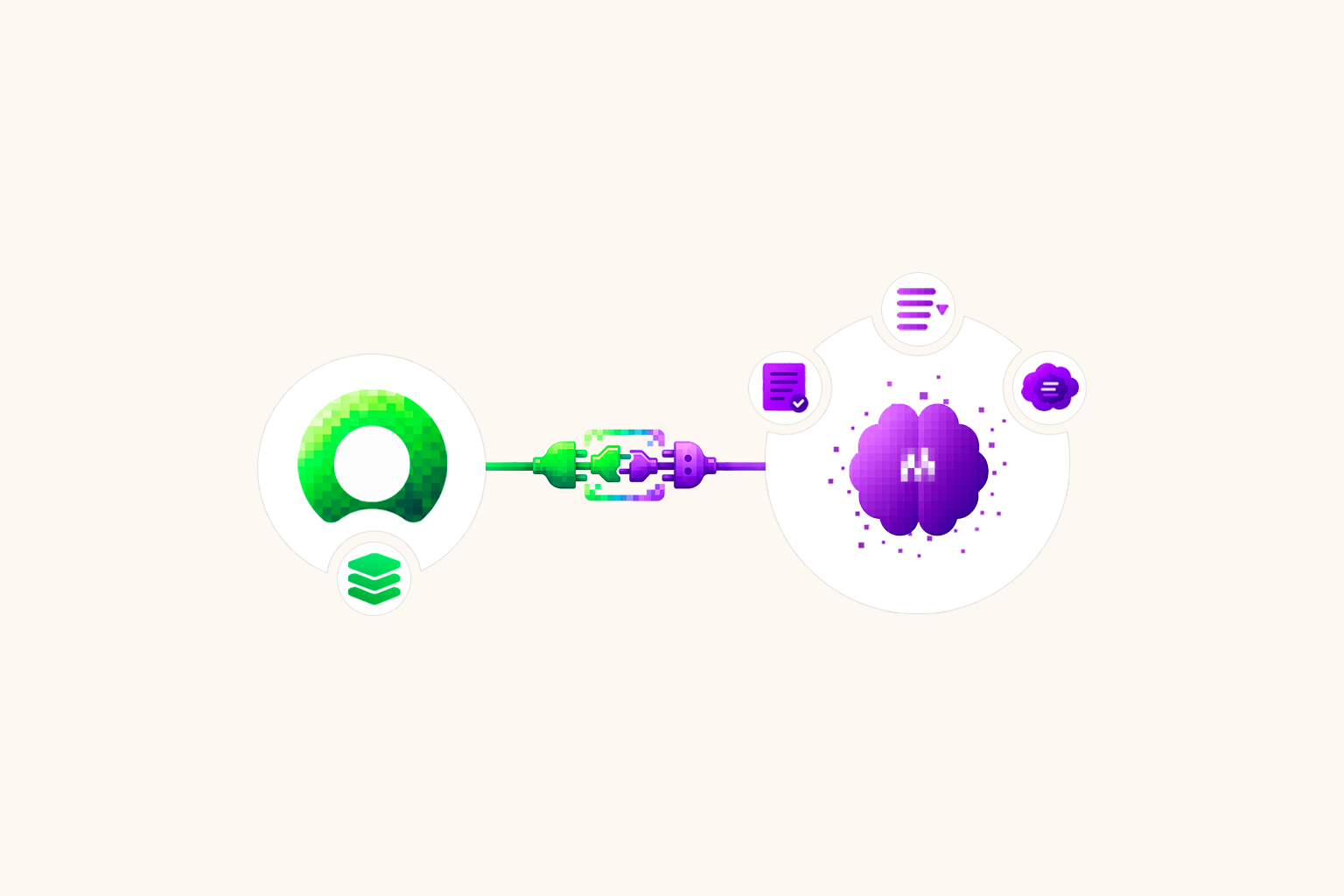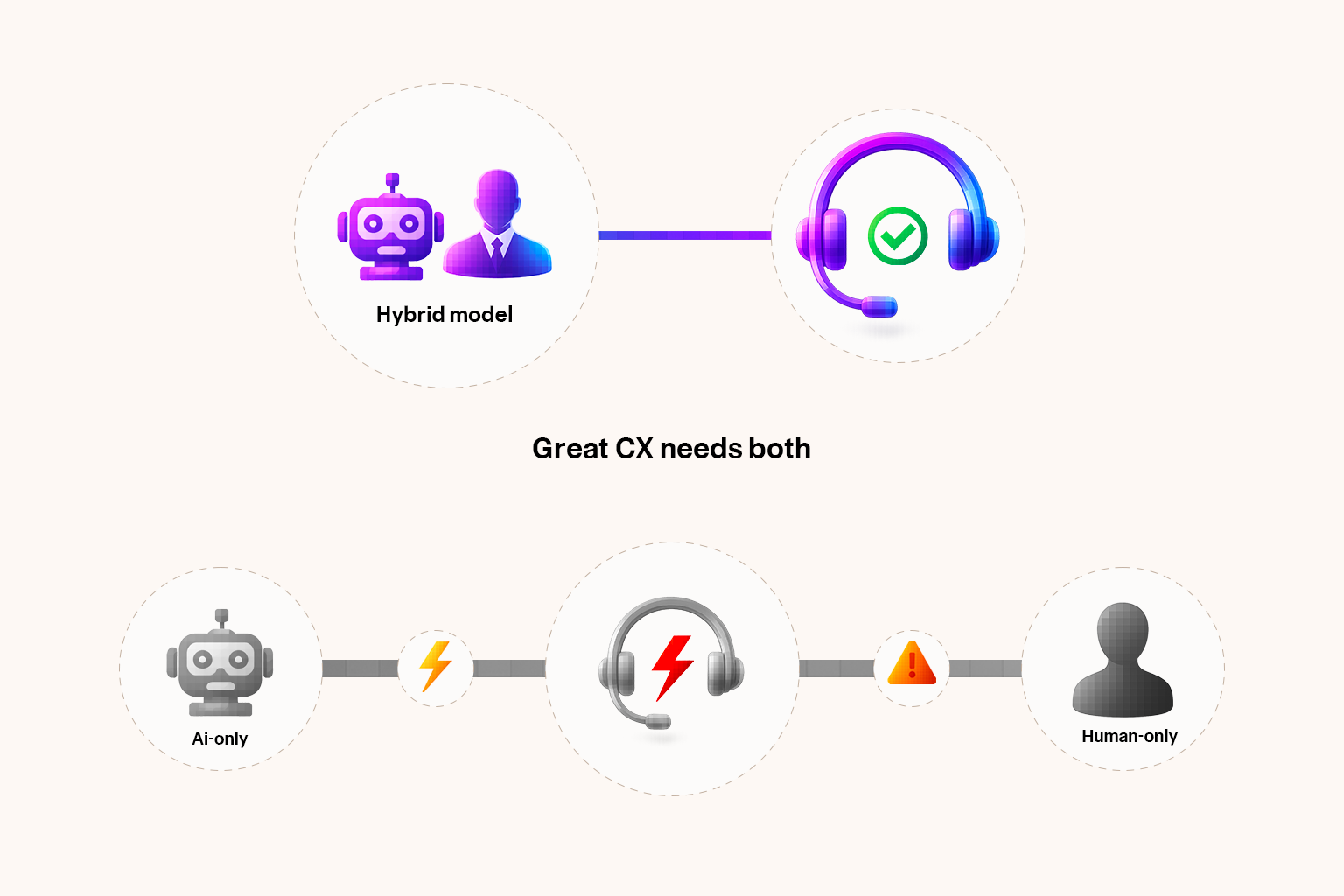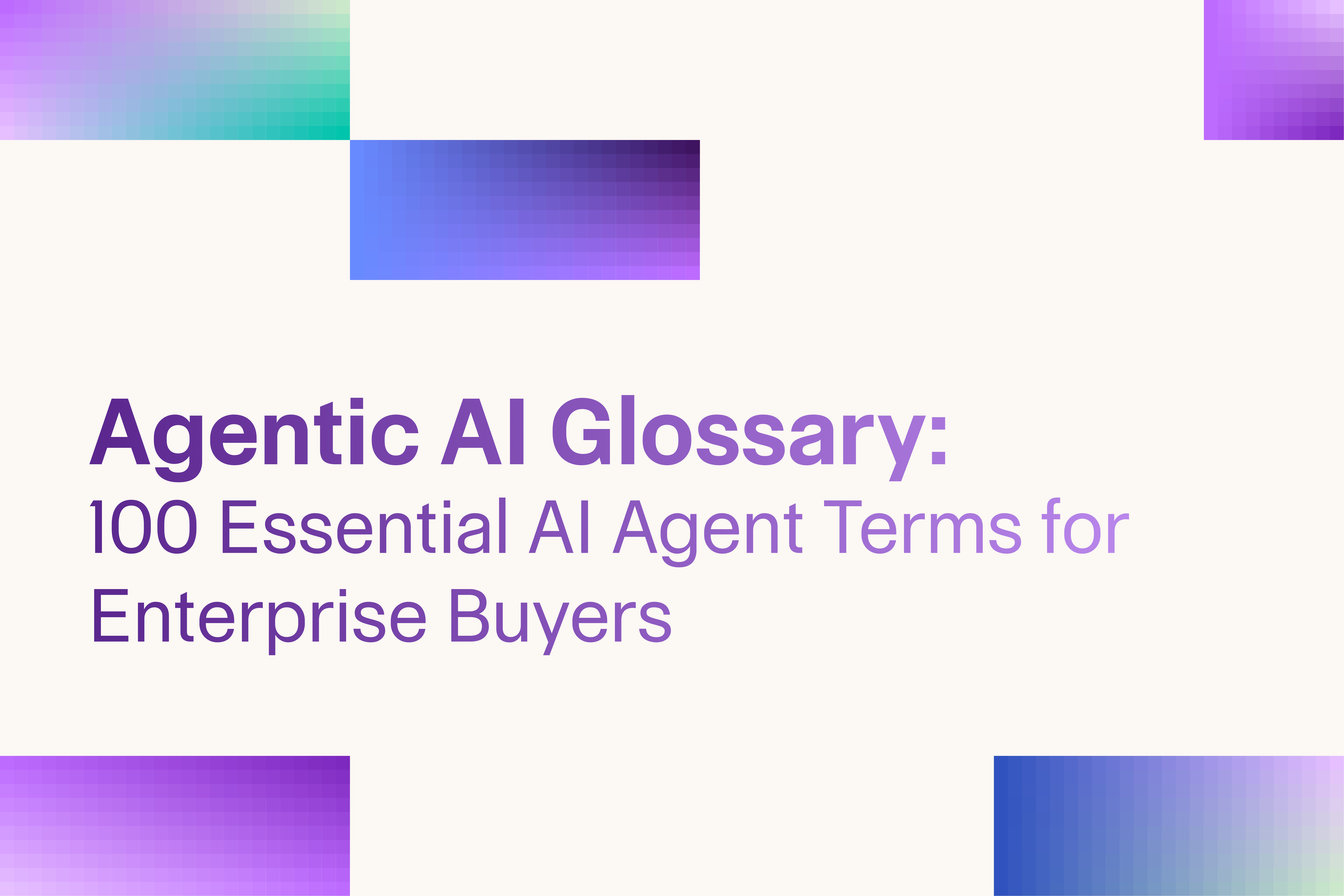MCP Support in Maven: Powering Action Across the Customer Journey
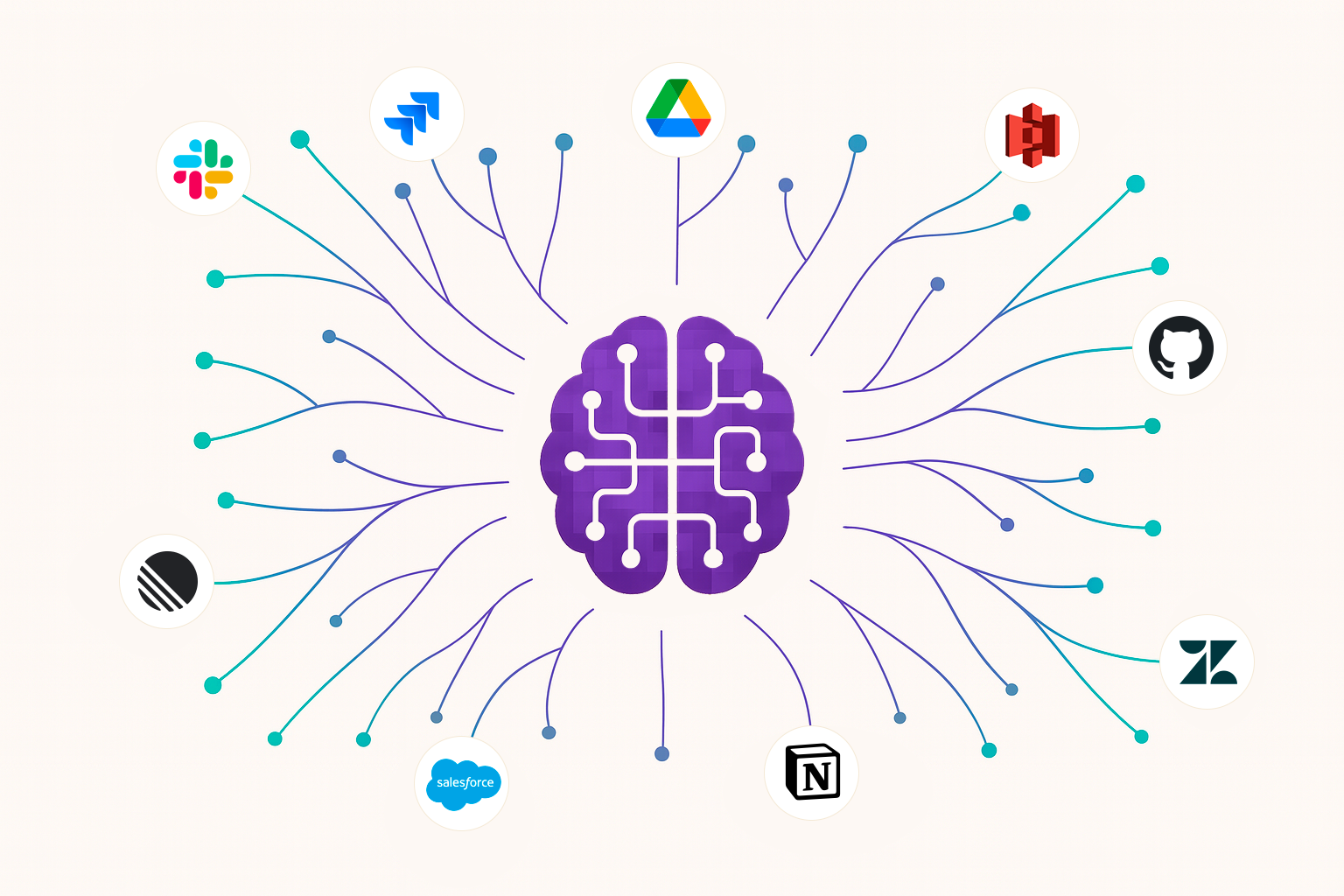
When you deploy an AI agent, the real value comes from what it can do: triggering workflows, updating records, and acting on real customer data across your systems. These actions might support a customer filing a claim, a rep prepping for a renewal call, or an agent surfacing key account insights during a support escalation. Wherever the work lives, the agent needs access.
While Maven already integrates with 100+ platforms out of the box, many enterprise environments include internal tools, industry-specific platforms, or custom-built systems that aren’t covered by standard connectors. Connecting those systems typically requires engineering lift and manual integration work, which slows things down right when you're trying to move faster.
That’s why Maven now supports Model Context Protocol (MCP), an open standard for connecting AI agents to software systems. If a system has an MCP server, your team can configure access through Maven’s UI in just a few steps; no additional engineering required.
How Teams Use MCP to Move Faster
MCP is designed to be a form of connective tissue, enabling AI agents and large language models to communicate directly with traditional software systems. Instead of relying on custom integrations, Maven uses MCP servers to access critical functionality, like checking order status or creating a ticket, without additional build work.
For example, say your team wants Maven to handle refund processing. This could be initiated by a support ticket, a billing escalation, or a proactive outreach workflow. That used to mean building an integration from scratch — reviewing API documentation, configuring authentication, and handling errors. Now, your team can paste an MCP server URL into Maven, configure access, and go live within minutes.
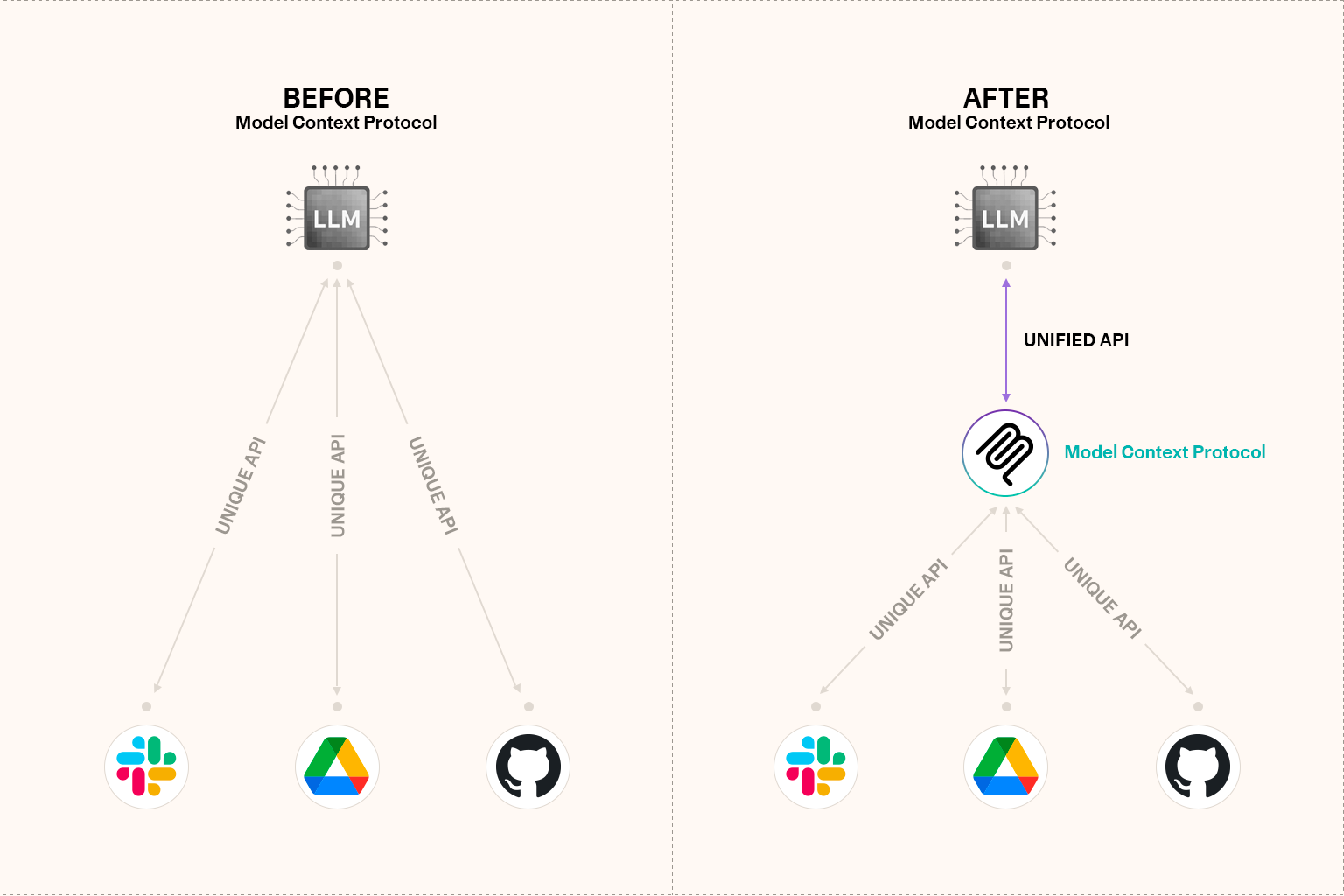
Why MCP Unlocks End-to-End Execution
More teams are asking about MCP as they look for faster ways to connect agents to the systems that power their customer journey. The reason is simple: whether it’s support, success, or operations, teams want agents that can take action — not just answer questions — without waiting on custom integrations.
With MCP, teams get:
- System access through configuration, not code
- Faster time to value with less internal coordination
- Scalable, low-maintenance connections as your stack evolves.
Because MCP is structured to match how agents reason and act, it’s a strong fit for expanding automation without introducing integration overhead. As more platforms support MCP natively, teams also benefit from cleaner, more standardized integrations that reduce risk and simplify maintenance.
The result: agents spend less time waiting on systems and more time delivering outcomes across the customer journey.
Ready to Try It?
If you’re using (or planning to use) MCP servers for your systems, reach out to your CX manager to get started.
Exploring agentic automation? Get in touch to see how MCP and Maven’s prebuilt integrations can accelerate your roadmap.
Don’t be Shy.
Make the first move.
Request a free
personalized demo.




